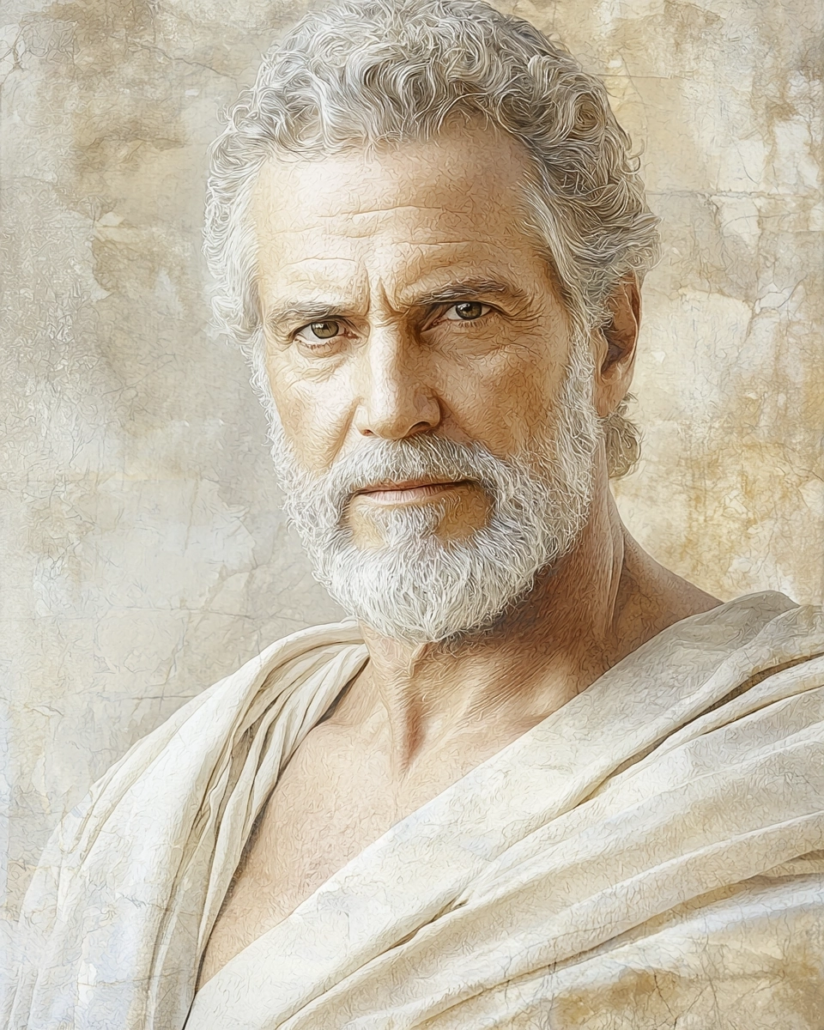Mnesarchus of Athens: Insights into Stoic Philosophy 🌱
Life and Stoic Teachings
Mnesarchus of Athens (flourished c. 2nd century BCE) was a distinguished philosopher of the Middle Stoa, particularly known for his focus on logic and ethics within Stoic philosophy. His teachings highlight the importance of reason and self-discipline as core elements of a virtuous life, helping to shape Stoicism in a way that resonated deeply with both his students and future thinkers.
Historical Context and Influence
Mnesarchus lived and taught in Athens, where he attracted many students with his clear focus on Stoic ethics and the role of logical reasoning. Although little of his work survives today, he is recognized for his contributions to ethical reasoning and for reinforcing the idea that logic is essential to understanding virtue. This approach influenced later philosophers and left a mark on Stoic thought. Deepen: Wikipedia
Why are his teachings and views so valuable?
Mnesarchus emphasized the importance of controlling one’s thoughts and cultivating inner peace through rational reflection. His philosophy offers a timeless guide to achieving calm and resilience in turbulent times, making his insights highly relevant to modern life. Read more: Applying Stoic Principles in Everyday Life
Key Teachings
Mnesarchus’ philosophy emphasized several key principles that remain influential:
- Reason as a Foundation for Virtue: Mnesarchus taught that true virtue can only be achieved through disciplined reasoning.
- Ethics and Logic as Interconnected: He believed that ethics and logic are inseparable, with ethical behavior emerging naturally from clear, logical thinking.
- Self-Discipline: Mnesarchus held that controlling one’s desires and impulses is central to living a virtuous and fulfilling life.
Legacy
- “Mnesarchus inspired not only his direct students but also later Stoics like Epictetus, who embraced his emphasis on reason and ethics.”
- “His views on the essential role of logic influenced the direction of Stoicism, deepening its appeal and rigor.”
- “Through his teachings on self-discipline and reason, Mnesarchus shaped modern Stoic principles and ethical thought.”
Stoic cardinal virtues that he embodied
- “Wisdom – through his emphasis on reason as the path to virtue.”
- “Justice – by teaching the natural connection between logic and ethical action.”
- “Courage – in advocating for self-discipline as a way to master one’s inner life.”
- “Temperance – by promoting balance between desires and rational thought.”
Quotes attributed to him
- “Only through reason can one truly discern virtue.”
- “Ethics follows naturally from a disciplined mind.”
- “A virtuous life begins with mastery over one’s thoughts.”


